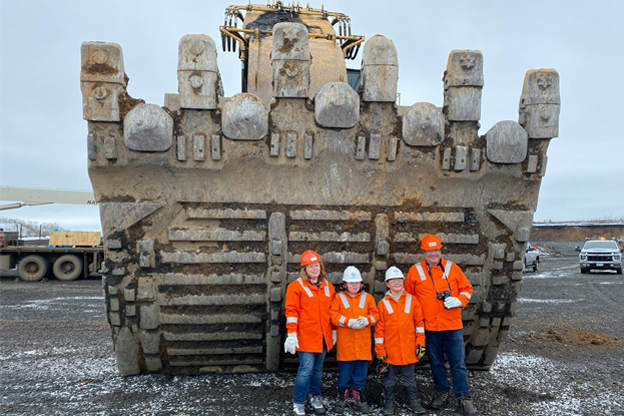

It’s not only the farmers
I wrote a story a couple of weeks ago about agricultural interests moaning about a piddling tax on fertilizer that the Legislature proposes to levy to help get drinkable water to people who have wells polluted by – wait for it – fertilizer. Why should we have to pay to clean up our mess? they say. It’s positively un-American. We might not make as much money! (The bill has been passed by a House committee for possible inclusion in the great log-rolling exercise known as an omnibus bill.)
Shirking responsibility for your own messes is positively American. It’s so American and patriotic that even United States Steel (currently protected from becoming Japan Steel by Joe Biden) wants to do it, too.
This is Exhibit A in the case for the American-ness of shirking responsibility for cleaning up you own messes.
The history of this particular shirk goes back to 1973 – making it an epic shirk, a shirk of Homeric dimensions – when Minnesota adopted the Wild Rice Rule. The Wild Rice Rule was established to protect wild-rice (big surprise there) growing waters from sulfate pollution. It was a sulfate standard adopted by the Minnesota Pollution Control Agency after scientific review, notice, and rule making, and approved by the U.S. Environmental Protection Agency.
Since then, the MPCA has done its level best to ignore the Wild Rice Rule, an effort that has been aided and abetted by the Legislature and multiple administrations. You can read a brief history of this sordid affair at this story on LeftMN. Really, read it, please; it’s a breathtaking indictment of our regulators and lawmakers.
One of the principal subjects of everybody’s studied inattention to the Wild Rice Rule was the Keetac (taconite) mine, owned by, you guessed it, United States Steel. (Just as a sidebar here, when I was a kid many years ago, and a big Mickey Mantle fan, my father told me, “Steve, rooting for the Yankees is like rooting for U.S. Steel. I didn’t fully appreciate the remark at the time.)
After almost fifty years of farting around by Minnesota regulators and legislators, the EPA rang down the curtain on the charade in 2021, telling the MPCA to start enforcing its own rule. It’s been like trying to make a nine-year-old choke down a tablespoon of peas. But the MPCA, after making faces and choking noises, finally ate the peas. U.S. Steel’s Keetac, after all these years of skating on expired permits and excuse making, had to face the music. So, it did the only American thing.
(Who counted the mixed imagery in the last paragraph?)
It asked for an exemption to the rule. And mirabile dictu, the MPCA said no. What do you mean, no? said U.S. Steel. We’ll appeal, and it has. (The appeal is a wacky exercise, but that’s for another day.) Which brings us back to the farmers. A U.S. Steel flack is quoted in the article linked above:
U.S. Steel spokeswoman Amanda Malkowski wrote in an email that because the company will now likely have to install more water-treatment equipment, “MPCA’s decision could result in increased environmental impact and less efficient operations, which would lead to increased costs that reduce our competitiveness in the marketplace.”
I am unsure how reducing sulfate pollution would “increase environmental impact” in other than a good way. Maybe Amanda is making that part up. The rest of it, though, is pure farmer fertilizer wailing: It’s better for our bottom line if somebody else has to clean up our mess.
It is the American way.
Thanks for your feedback. If we like what you have to say, it may appear in a future post of reader reactions.

